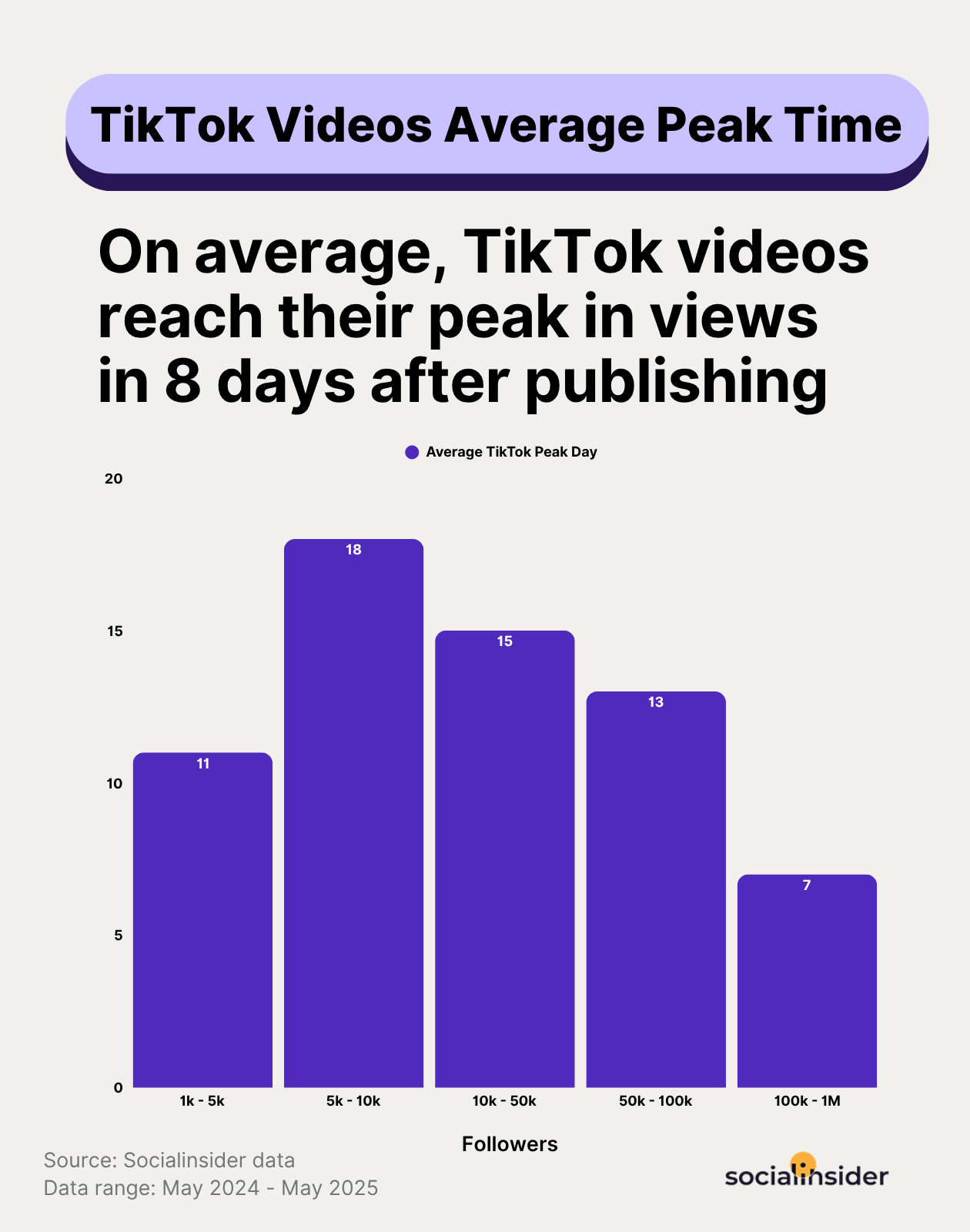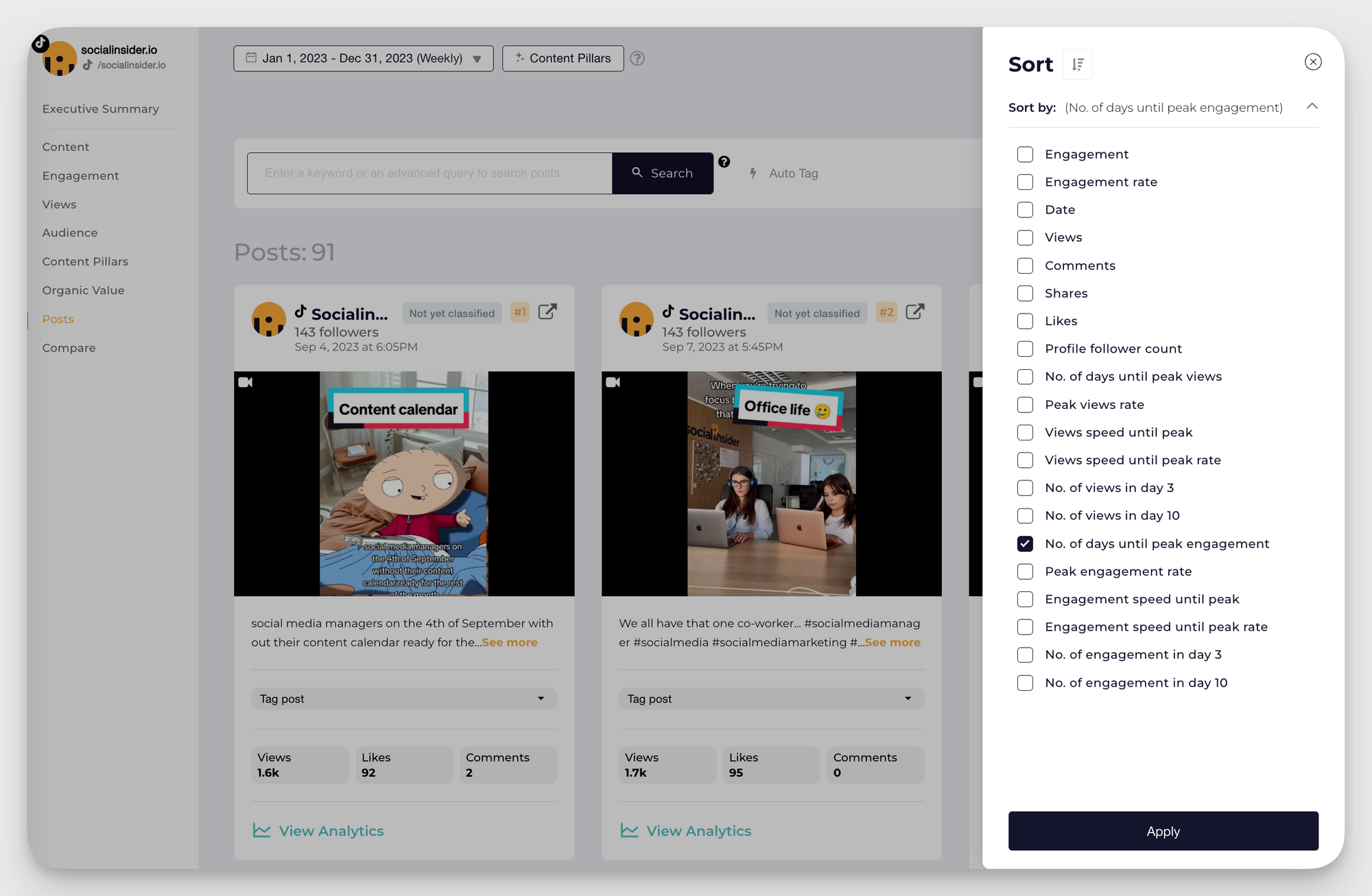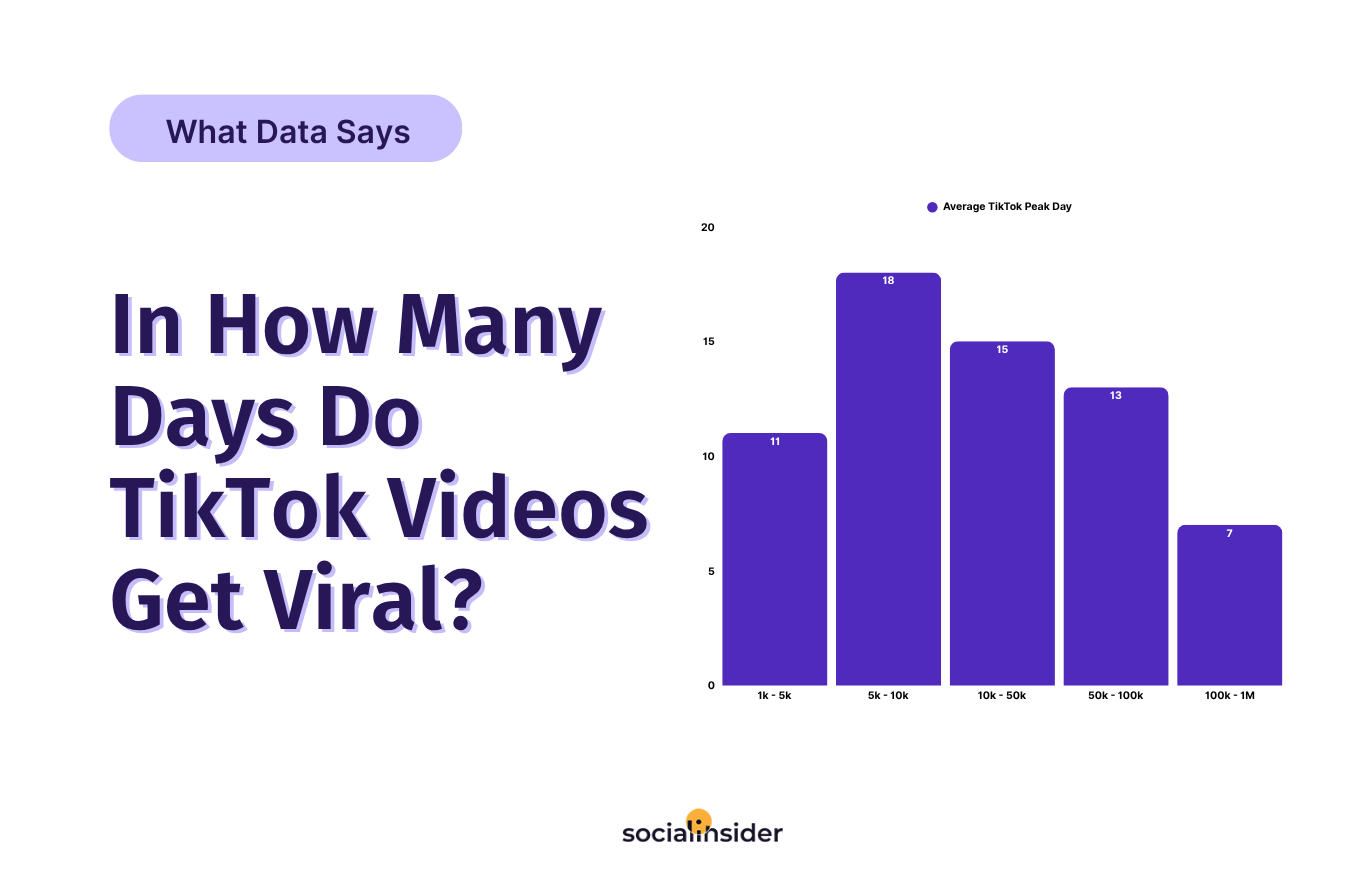Thanks to its highly trainable, machine-learning-based algorithm, TikTok has nowadays become the most effective virality enabler.
In an attempt to get increased exposure, which ultimately translates into more sales, many businesses have tried to understand the TikTok virality-producer content recipe that, once replicated, could skyrocket their brands.
While virality is influenced by multiple factors, for starters, we were curious to see how an account’s follower base impacts virality. Let’s dig into the data together!
Executive summary
- On average, it takes 8 days for a video to reach peaak in viewership
- The smallest accounts accounts (below 5K followers) and the largest ones (those with 1000K followers) are the fastest in reaching virality
Ever since different accounts, trends, and campaigns gained virality on TikTok and enjoyed the attention of billions of social media users, there have been a couple of questions circling around the internet related to what the TikTok virality formula is these days.
One of them is about how long it takes for a TikTok video to get viral.
According to data, the average time for a TikTok video to reach its peak in viewership is 8 days.
However, while addressing this, keep in mind that it doesn’t implicitly mean that every video on TikTok will become viral after two weeks.
To be honest, in the end, it is pretty hard to predict specifically which content will get viral on TikTok, given that there are multiple components taken into consideration by the algorithm, from the usage of trending songs to integrated hashtags and many more.

Now, when talking about TikTok, we all know that for being a video-oriented platform, the number of views is a more relevant performance metric than the number of followers, as opposed to other social platforms’ cases.
However, this doesn’t mean that the follower base isn’t still an indicator of an account’s capacity to offer value to the network’s users.
The best proof of this lies in the data, which showed that an account’s follower base could influence its speed until reaching virality. For example, accounts with a higher number of followers are more likely to reach virality sooner than profiles with fewer followers.
While the smallest accounts reach their video viewership peak 11 days after being published, on average, the largest accounts’ average viewership peak day is 7.

How to get into the nitty-gritty of deconstructing TikTok’s virality?
We at Socialinsider love to dig into the data and offer you powerful insights to optimize your social media strategy.
To do so, we’ve put on our scientists' clothes and came up with a series of new TikTok metrics that can help you better understand TikTok virality.

Check out Socialinider's TikTok analytics tool to discover our revolutionary TikTok virality metrics and learn how to boost your account!
Methodology
We know TikTok is a wild card. You may have noticed or heard that at times, some videos get crazy number of views, some other times lesser views, but amazing engagement. And there are obviously the cases when some videos do not perform that well neither in terms of views, neither in terms of engagement.
As mentioned before, not all videos on TikTok get viral - that’s up to the platform’s algorithm that takes into consideration a series of criteria the videos need to meet.
However, let’s focus a bit on those that GET viral. In TikTok’s case, we know that virality may happen overnight. But what about those videos where that does not happen like that?
Socialinsider’s virality peak metric was invented in an attemp to identify how long does it take, on average, for a video to get viral in the case of those that do. Correlated with the data presented, a takeaway of this research is that if after 8 days after being published a video did not get viral, there are less chances to do so moving forward.
For this research we analyzed 4,557,830 tiktok videos published between May 2024 - May 2025.
Virality peak is a custom metric developed by Socialinsider that measures the day in which a TikTok video stops having an increase in viewership that’s greater than 3% for two days in a row.
Frequently Asked Questions
1.How many Tiktoks should I post a day?
According to TikTok, you should post between one to four times per day. If that feels like a lot, it is. Especially when you consider that posting three to five times per week on Instagram Reels is the norm. It'll help to remember that your videos don't need Avatar-level production quality.
2.Should I stay off TikTok after posting?
After you post your video you should leave the app because this can help you get more engagement.
3.What are the peak hours for TikTok?
A generally accepted trend that marketers follow for the platform is that the best time to post on TikTok is 10 to 11.50 am, 2.30 to 4 pm, and 6:30 to 9:30 pm, somewhere between Tuesdays and Thursdays. However, many have found that their audience activity does not fit into one single templatized time for posting.
4.Should I delete TikTok videos with low views?
You should never delete or private your TikTok videos. This will drop your views drastically.
5.What should I avoid posting on TikTok?
- Violence and hateful behaviour. We want everyone to feel empowered to express themselves on TikTok.
- Harassment and bullying. TikTok seeks to create an environment where everyone feels welcome and safe.
- Adult nudity and sexual activities.
- Graphic content.
- Minor safety.
- Misleading or infringing content.









